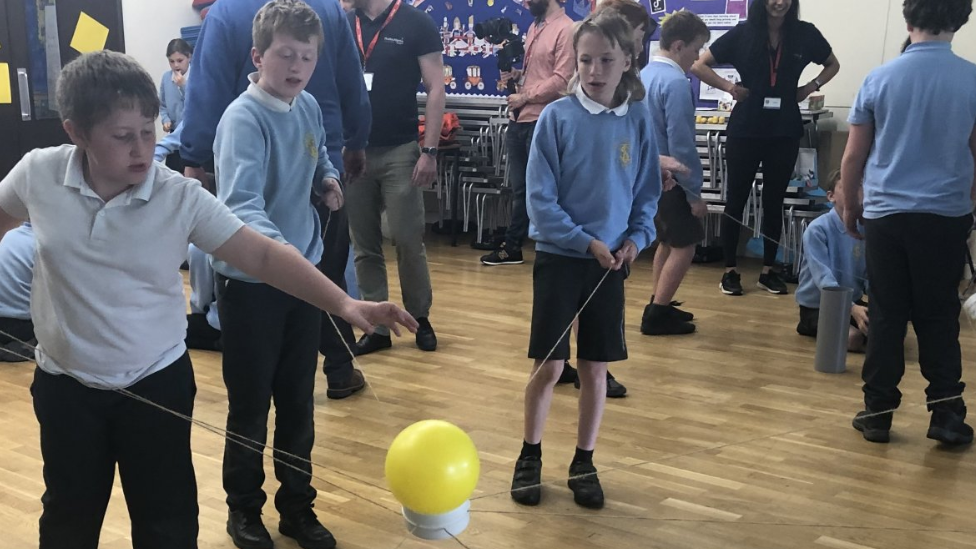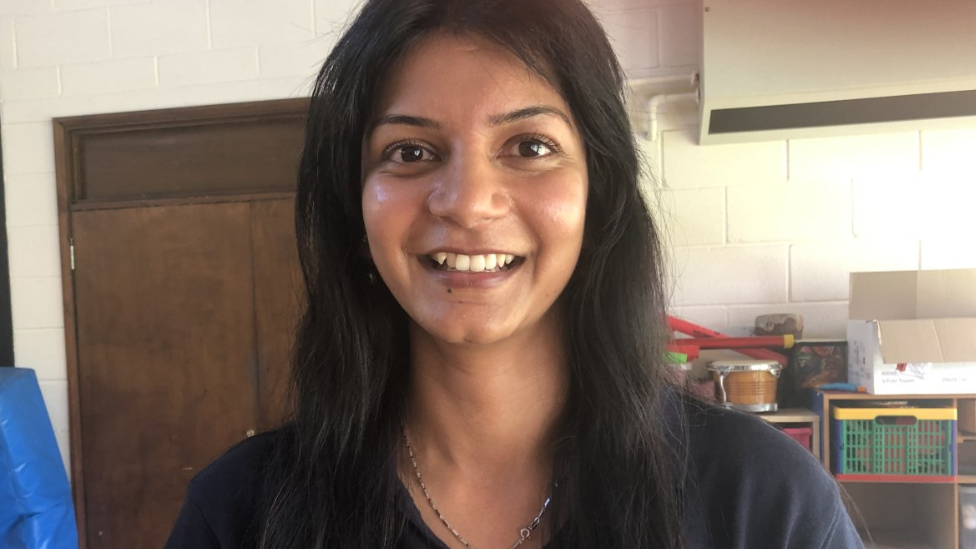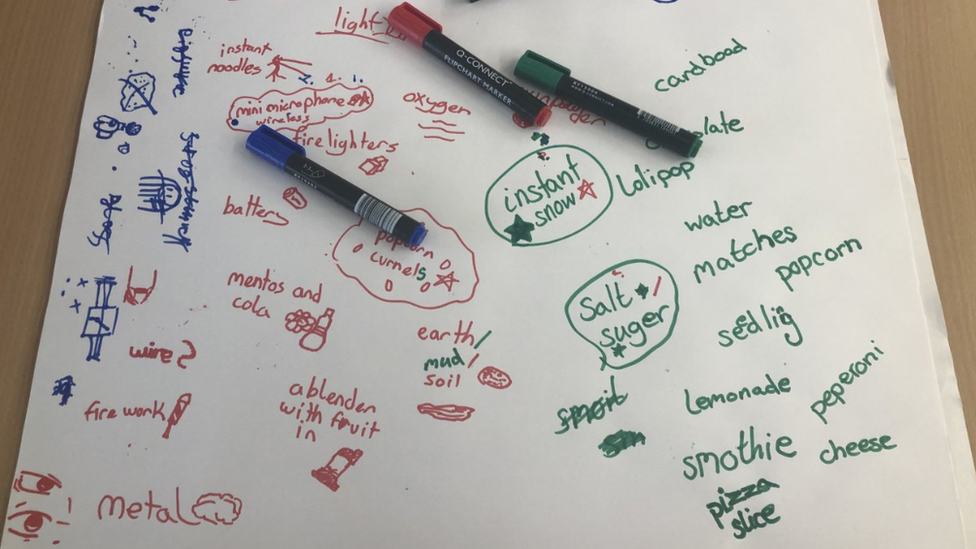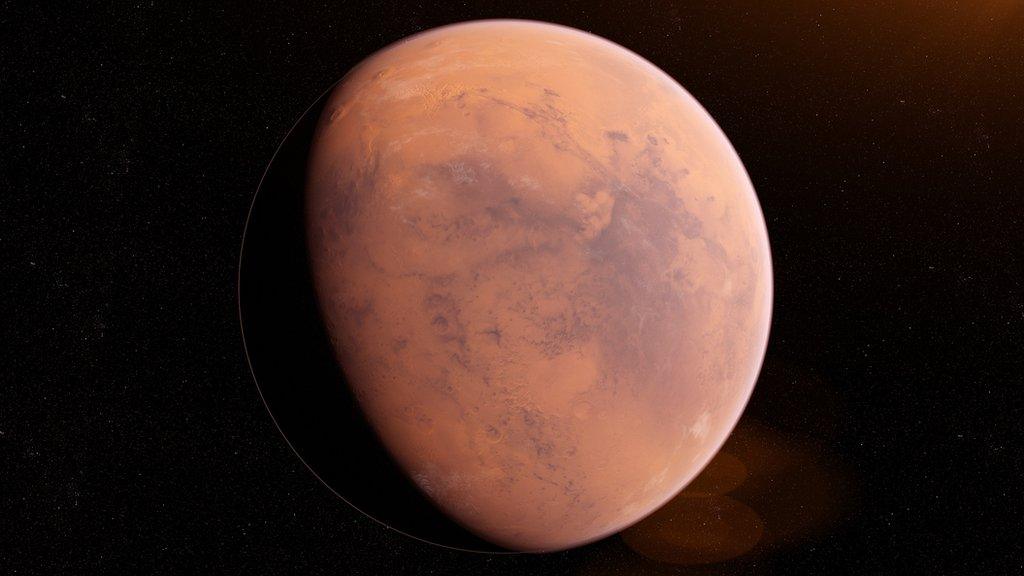MARSBalloon: Gloucestershire school experiments to fly in space
- Published

Pupils at Leonard Stanley Primary School try to simulate how a spaceship might land on Mars
Science experiments created by primary school children are to be flown in space as part of a special project.
Pupils at Leonard Stanley Primary School, Gloucestershire, are taking part in workshops with global space manufacturer, Thales Alenia Space.
The experiments will be attached to a special balloon and sent 18 miles (30km) in the air where they will experience conditions similar to Mars.
The project is testing ideas that could one day be used on the red planet.
The MARSBalloon project, run by Thales Alenia Space, is a free scheme open to all schools and aims to test anything that humans or robots will be doing on Mars in the future.
During the four hour flight next month, the balloon will carry over 150 student experiments to an altitude of 30km, where they will be above 99% of Earth's atmosphere.

Drashti Shah from the Thales Alenia Space company has been leading the workshops
The tests will experience conditions similar to the surface of Mars, including temperatures of -50°C (-58°F), pressures 1/100th of that at sea level and an increased radiation dose.
When the balloon bursts, the experiments will then be recovered so students can analyse the results.
Year 6 pupils will be able to test the response of electronics, materials, plants and even food to the conditions outside of a future Mars base.
Propulsions Engineer at Thales Alenia Space, Drashti Shah, said the children had shown great awareness of the challenges of space: "I'm really impressed by the children's ability to understand the lack of gravity in space, you know, the impact it might have on daily life like water.
"Also the lack of oxygen and how you might need plants and trees to provide that lack of oxygen.
"They're not just thinking about the problem but they are thinking of a solution."

As part of the workshops, children were asked to list what they would take with them if they went to Mars
Headteacher at Leonard Stanley Primary School, Andrew Green, said he was keen for his school to take part in the initiative.
"To have that opportunity for them, to actually work with professionals...engaging in a project where the future potential of missions to Mars, communities on Mars...
"They feel like they are playing some small part in that."
The MARSBalloon initiative is also aiming to encourage more interest in science, technology and engineering.
Pupil Joss said she was inspired by the workshop: "Anyone can work in the Space Station if they're really smart and stuff, and I think more women should go up to space because it's an amazing experience."
The experiments from Leonard Stanley School will be flown into space in June.

Follow BBC West on Facebook, external, Twitter, external and Instagram, external. Send your story ideas to: bristol@bbc.co.uk , external
Related topics
- Published27 April 2023

- Published30 January 2023
- Published14 December 2022